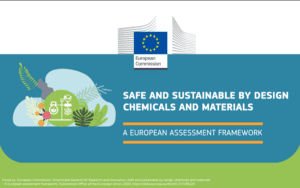The discussions surrounding the 10th Framework Programme for Research and Innovation (FP10) have already begun, with preparations for its launch in January 2028. As the successor to Horizon Europe, FP10 will play a critical role in shaping Europe’s future research and innovation landscape, addressing pressing global challenges like climate change, technological advancement, and security.
A significant focus of the ongoing dialogue is how to strengthen the EU’s research base while supporting a knowledge- and data-driven economy. Given the complex geopolitical and economic context, there is a growing emphasis on ensuring the EU’s strategic autonomy, technological sovereignty, and global competitiveness through robust R&I policies.
The European Research and Innovation Committee (ERAC) has already outlined key strategic priorities for FP10. These include building on the successes of Horizon Europe by maintaining a strong focus on excellence, supporting the entire R&I value chain, and promoting collaboration between EU Member States, Associated Countries, and stakeholders. The committee also stresses the importance of aligning R&I investments with broader EU policy goals, including enhancing global competitiveness, supporting decarbonization, and increasing Europe’s strategic autonomy.
The timeline for FP10 is already taking shape. In 2024, stakeholders have provided their input on the programme. ERAC has delivered its recommendations, and a High-Level Expert Group, chaired by former Portuguese Minister of Science, Technology and Higher Education Manuel Heitor, has been tasked with advising the European Commission. The result is the Report, entitled ‘Align, Act, Accelerate: Research, Technology and Innovation to boost European Competitiveness’, which highlights the European added value of the EU framework programme for research and innovation (R&I), and puts forward twelve recommendations. Additionally, an interim evaluation of Horizon Europe will be published in spring 2025, providing valuable insights into the current programme’s successes and challenges.
The European Commission plans to release its formal legislative proposal for FP10 by mid-2025, followed by negotiations in the Council and the European Parliament. The final adoption of FP10 is expected by the end of 2027, just before Horizon Europe concludes. This timeline will set the stage for the implementation of FP10 from 2028 onwards.
Despite the progress, there remain uncertainties surrounding the exact scope and structure of FP10. One major consideration is the EU budget, which will influence how much funding is allocated to R&I. While Horizon Europe has played a role in supporting European research, the next programme’s budget and ambition will depend on broader political decisions, particularly as Europe navigates financial pressures and global challenges.
Ultimately, FP10’s design will reflect a balance between continuity and change. The ongoing discussions, expert advice, and feedback from the research community will shape a programme that is both forward-thinking and responsive to Europe’s evolving needs. As the timeline progresses, the European Commission will continue to refine its proposal, with the aim of launching FP10 as a major driver of Europe’s research and innovation for the next decade.
If you would like more information about EuChemS’ policy efforts, click here.



